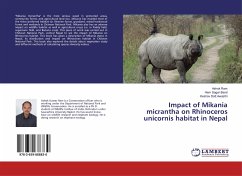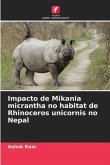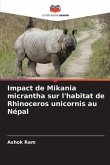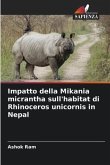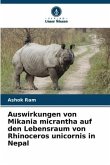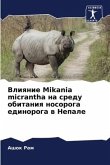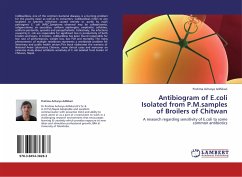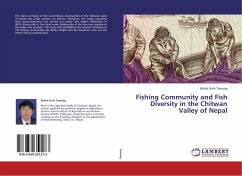"Mikania micrantha" is the most serious weed in protected areas, community forest, and agricultural land too. Mikania has invaded most of the rhino preferred habitat viz. Riverine forest, grassland, mixed hardwood forest and wetlands in Chitwan National Park. Mikania also has an adverse impact on wildlife habitat as well in agricultural crops (i.e. in Paddy field, sugarcane field, and Banana crop). This piece of work was carried out in Chitwan National Park, central Nepal to see the impact of Mikania on Rhinoceros habitat. This book has given a description of Mikania status in Nepal, its distribution and impact on Rhinoceros habitat in Chitwan National Park. This book also explored the details about vegetation study and different methods of calculating species diversity indices.

